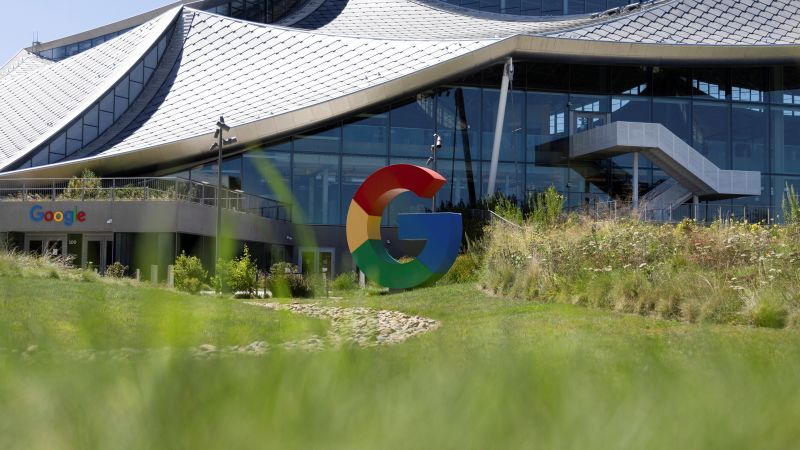In a landmark ruling with potentially seismic implications for the digital landscape, a federal judge has declared that Google has illegally established “monopoly power” within the web advertising sector. This decision, siding with the Justice Department, marks a significant victory in the ongoing battle against tech giants accused of stifling competition. The case could fundamentally alter how websites generate revenue and how online advertising operates.
The ruling highlights Google’s anticompetitive practices within its ad tech “stack,” the technology used to match website publishers with advertisers. This decision is the second major court loss for Google in less than a year, and the third overall since December 2023, underscoring the breadth of the legal challenges facing the company. Expect appeals to prolong the final outcome.
This article will delve into the details of the ruling, explore the potential consequences for Google and the broader internet ecosystem, and examine the wider implications for antitrust regulation of Big Tech.
The Ruling: Google’s Monopoly Power
District Judge Leonie Brinkema, presiding over the US District Court for the Eastern District of Virginia, addressed the $31 billion segment of Google’s advertising business that connects website publishers with advertisers. This segment, known as the ad tech “stack,” determines which banner ads are displayed across numerous websites.
The judge found that Google illegally maintained its monopoly power by tying together its ad server and ad exchange. In her 115-page decision, Brinkema stated that this conduct not only deprived rivals of the ability to compete but also substantially harmed Google’s publisher customers, the competitive process, and, ultimately, consumers of information on the open web.
“In addition to depriving rivals of the ability to compete, this exclusionary conduct substantially harmed Google’s publisher customers, the competitive process, and, ultimately, consumers of information on the open web,” wrote Judge Brinkema.
This ruling echoes previous criticism that Google’s extensive involvement in the digital advertising ecosystem – both enabling advertisers to place ads and allowing publishers to offer ad space – represented a conflict of interest that Google exploited in an anticompetitive manner.
Potential Consequences for Google
Thursday’s ruling could force Google to divest part of its online advertising business. However, Google is likely to appeal the decision, which could delay any potential remedy for months or years. The appeals process would introduce prolonged uncertainty.
A forced divestiture could reshape Google’s ad tech operations, potentially leading to the separation of its ad server and ad exchange. This could open the door for greater competition and innovation within the online advertising market, potentially benefiting publishers and advertisers alike.
“The Justice Department’s lawsuit followed years of criticism that Google’s extensive role in the digital ecosystem… represented a conflict of interest that Google exploited anticompetitively,” states CNN.
The financial ramifications of the ruling remain uncertain, but the potential for significant penalties and restructuring costs looms large. Google’s standing in the advertising market could suffer.
Broader Implications for the Internet Ecosystem
The ruling has broader implications for the internet ecosystem beyond Google. It could signal a shift towards greater regulatory scrutiny of tech giants and their market power. This may lead to increased antitrust enforcement and a re-evaluation of the competitive landscape in various tech sectors.
The decision could also impact the economics of running a modern website. If Google is forced to change its advertising practices, publishers may need to explore alternative revenue models to sustain their operations. Consumers could benefit from a more competitive and transparent online advertising market.
Google had argued that the Justice Department’s argument is “flawed” and would “slow innovation, raise advertising fees, and make it harder for thousands of small businesses and publishers to grow,” according to a company spokesperson.
Antitrust Regulation of Big Tech
Thursday’s ruling is part of a broader push by regulators to check the power of large tech companies, including Apple, Meta, and Amazon, in addition to Google parent Alphabet. Just this week, Meta CEO Mark Zuckerberg testified in a trial over a blockbuster antitrust lawsuit in which the US Federal Trade Commission accused the social media giant of buying would-be competitors to stifle competition.
These regulatory efforts reflect growing concerns about the dominance of a few powerful tech companies and their potential to stifle innovation and harm consumers. The outcome of these cases could significantly reshape the tech landscape and redefine the boundaries of antitrust regulation.
“The decision is also part of a wider push by regulators to check the power of large tech companies including Apple, Meta and Amazon in addition to Google parent Alphabet,” CNN reports.
Developing Story
This is a developing story, and further updates are expected as the legal proceedings unfold. Google’s response to the ruling and any subsequent appeals will be closely watched by industry observers and regulators alike.
The outcome of this case will likely have a lasting impact on the online advertising market and the broader internet ecosystem, shaping the future of competition and innovation in the digital age.
Conclusion
The court’s ruling against Google marks a turning point in the ongoing debate about the power and influence of tech giants. The decision underscores the importance of antitrust enforcement in ensuring a level playing field and protecting consumers from anticompetitive practices.
While the ultimate outcome of the case remains uncertain, the ruling sends a clear message that regulators are willing to challenge the dominance of even the most powerful tech companies. The future of online advertising and the broader internet ecosystem may well depend on the outcome of this landmark case.

Leave a Reply